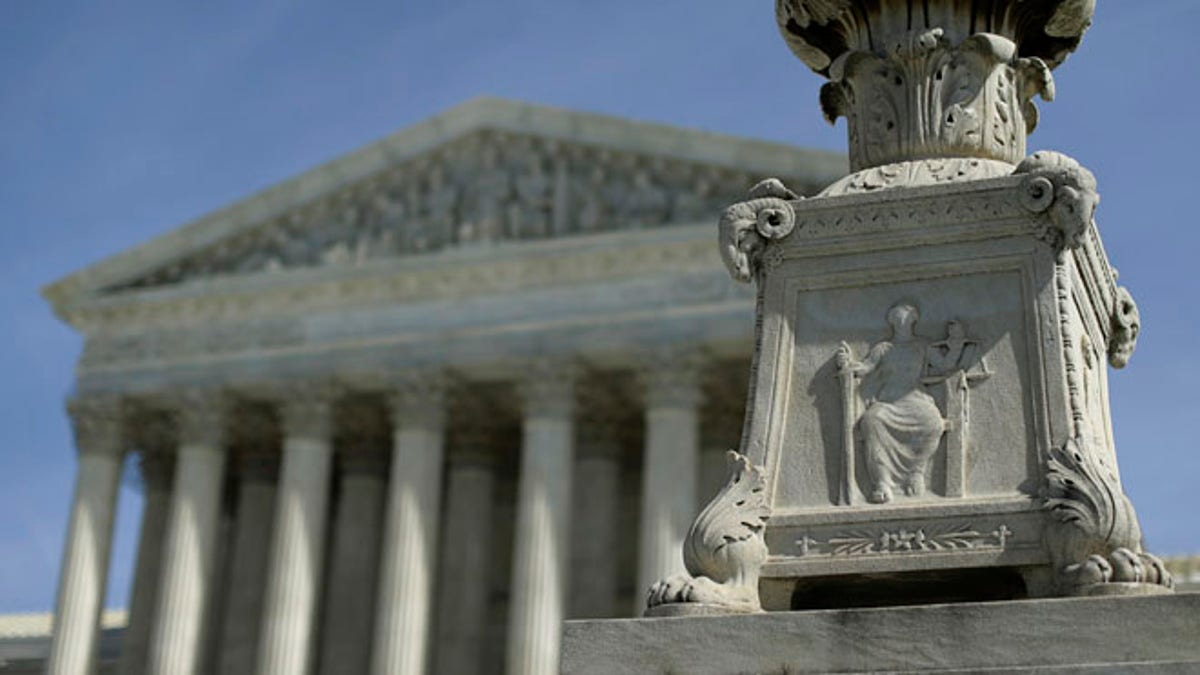
March 14, 2014: The exterior of the U.S. Supreme Court in Washington, D.C. (Reuters)
The Supreme Court decision in Virginia Gov. Bob McDonnell's case earlier this year demonstrates that not everything that looks like a duck, walks like a duck and quacks like a duck is a duck...
Not everything that appears to be political graft is illegal. It also shows that Virginia's ethics laws do more to foster corruption than prevent it.
Gov. McDonnell and his wife made off with a $15,000 Rolex, use of a new Ferrari and over $150,000 in cash. In exchange the governor had some meetings, made calls and sent emails trying to help the donor.
What the governor was charged with was run-of-the-mill political bribery. The legal standard allows the jury to "infer" or "imply": a corrupt agreement from circumstantial evidence, the acts and actions of the actors. Winks and nods may be assumed. The jury found him guilty, the Supreme Court had a different take saying there was no "official action."
In the case that sent Richard Scrushy, a Fortune 500 CEO and me to prison, there was no financial gain, no self-enrichment scheme, no personal benefit and the "thing of value" was a campaign contribution, not to me, but to support a statewide ballot initiative referendum campaign to benefit public education.
Note: there was no testimony citing a "quid pro quo." But I did take official action that was unrelated to the campaign contribution. That was enough to get a conviction because the judge allowed the jury to convict based on circumstantial evidence, not on the facts of what had occurred.
The last case involving extortion/bribery in a campaign contribution was the McCormick case, where the Supreme court held that to cross the line from politics to crime, there must be an "explicit" agreement where the terms of the agreement are asserted.
Mr. Scrushy and I were convicted because the judge allowed the jury to use the “run-of-the-mill" bribery standard rather than the McCormick standard, where a campaign contribution is involved. -- A much higher standard of proof that the government could not have possibly reached. There simply was no evidence of an agreement where any corrupt agreement was asserted between Mr. Scrushy and myself.
It stands as a fact, that what we did was not a crime until the judicial decision that sent us to prison for 168 months. Our case was and remains an anomaly, the only case in American Jurisprudence. The Circuits split and the law murky, running the gamut from the Second Circuit requiring an "Express" agreement to the Eleventh, allowing an "Inferred" from the minds of the actors. (George Will, 2/12/12 called this "dangerous discretion") Even the Eleventh Circuit is a house divided. There are two different standards being used out of the same courthouse where I was convicted!
After the U.S. Supreme Court defined "bribery" in the Skilling case as requiring cash changing hands, self-enrichment and personal gain (witness: McDonnell and the Clintons), it asked the Eleventh Circuit to take another look at the Siegelman case. The Eleventh Circuit looked but ignored the Court's definition of bribery. Clearly, under the Court's decision in Skilling, Richard Scrushy and I should be exonerated. There simply was no personal gain. Period.
Author’s note: The allegations of quid pro quo political bribery against the Clintons and Senator Bob Menendez must be viewed by different legal standards while both must be shown to have taken "official action."
1. The allegations swilling around the Clintons and the Clinton Foundation are “run-of-the-mill" allegations, therefore a jury would be allowed to "infer" or "imply" a corrupt agreement.
2. Since many of the charges against the Senator relate to campaign contributions to a super Pac and to other Democratic campaign entities, his actions should be viewed through the more demanding legal standard requiring proof beyond a reasonable doubt that there was an "explicit" agreement, where the parties asserted the terms of the agreement.
